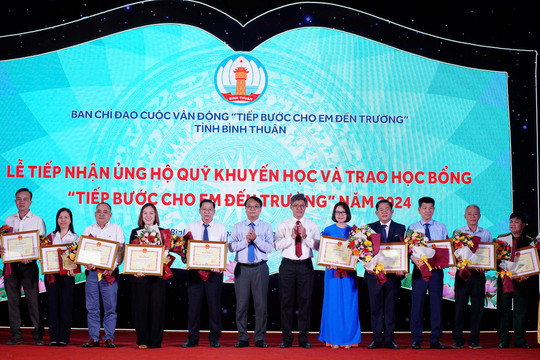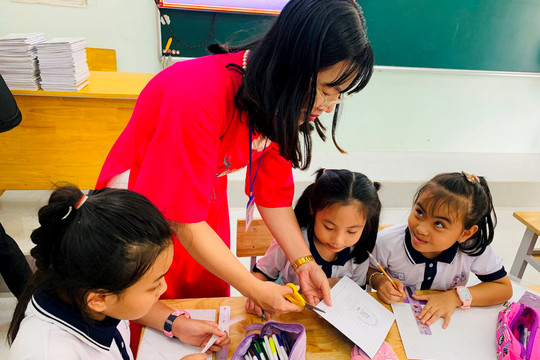 |
Most notably, when tasked with reading familiar words and reading aloud, students performed better than standard criteria set by the ministry.
These were the results of the ministry's early grade reading assessments (EGRA), which tested more than 3,000 randomly-selected students in three grades from 112 primary schools in the northern provinces of Dien Bien and Lao Cai; central provinces of Quang Tri and Nghe An; Central Highlands province of Gia Lai; and southern province of Vinh Long.
Each student took an oral test with a surveyor, which took less than 15 minutes, to measure basic foundation skills for literacy acquisition such as recognising letters of the alphabet, reading simple words, understanding sentences and paragraphs, and listening with comprehension.
EGRA, an oral student assessment following international standards, has been applied in 60 countries and 80 languages all over the world.
The survey revealed that students find it difficult to read the names of letters and to read aloud words that they had written down – revealing shortcomings in comprehension.
The results of reading comprehension, listening with comprehension and dictation still remain low, especially in the first-grade group, said Associate Professor Vu Thi Thanh Huong, a representative from the ministry's School Education Quality Assurance Project (SEQAP).
The survey also revealed major differences in the abilities of first-grade students from ethnic groups. However, the gaps are less visible in groups of second-grade and third-grade students.
In addition, ethnic minority students, particularly those from Gia Lai province, have made significant progress in grade three.
According to Tran Dinh Thuan, deputy head of the ministry's Primary Education Department and SEQAP management board director, said the new student assessment shows accurate results for specific reading skills and elements that affect the reading skill development of children in early primary grades.
The survey's results also serve as a basis for the ministry to make necessary adjustments to enhance students' reading skills when they take Vietnamese lessons.
"After two assessments, we found that the reading skills of Vietnamese students are very good," he said.
It is time to review whether the standards set by the ministry, especially those in reading comprehension, are suitable for students. The assessment also helps teachers to alter their teaching methods and organisations in line with students' abilities, he added.
VNA




















.jpg)





.jpeg)

.jpeg)


.jpeg)


